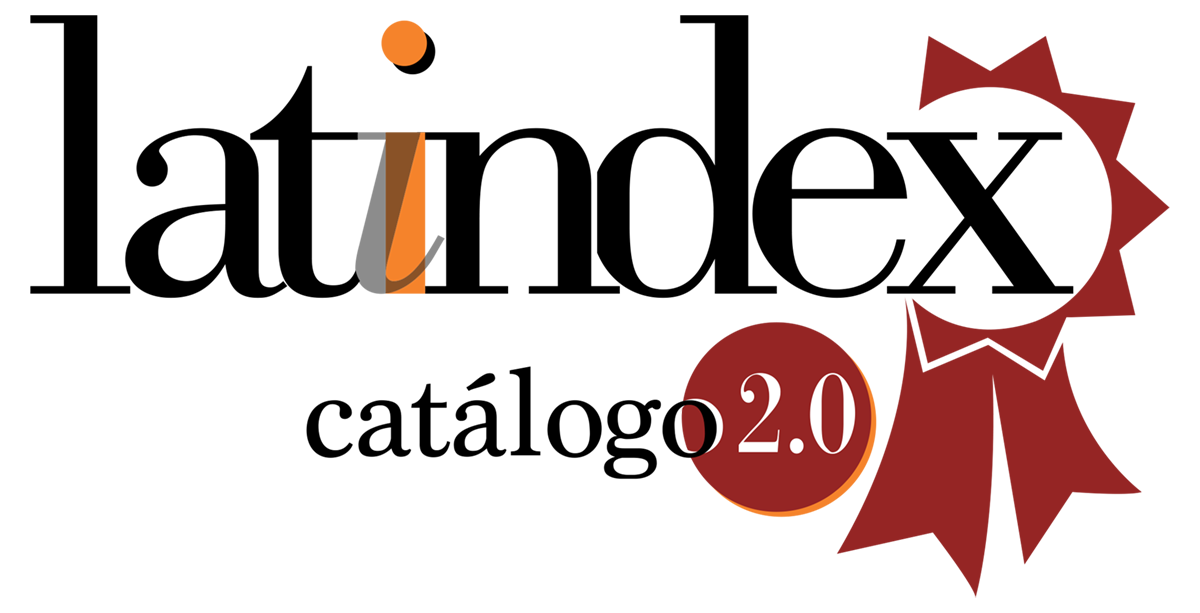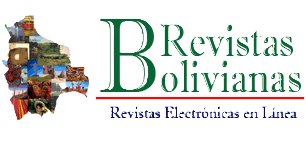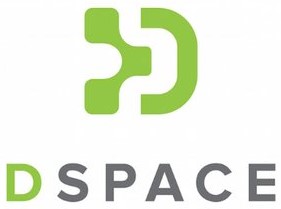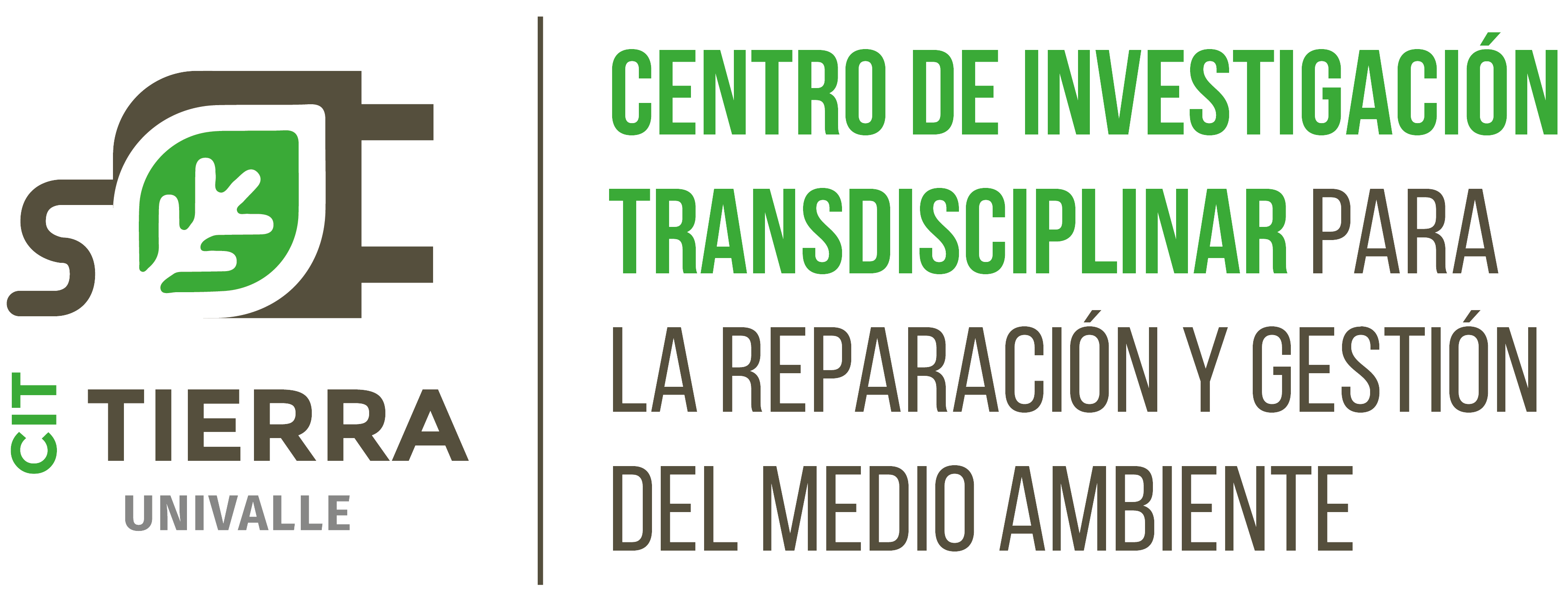Study Pre-feasibility for the Implementation of a Methanol Plant from Dry Methane Gas in the Province Carrasco at Department of Cochabamba
DOI:
https://doi.org/10.52428/20758944.v13i39.653Keywords:
Methanol Plant, Lurgi MegaMethanol TechnologyAbstract
The project aims to make the study pre-feasibility far implementation a petrochemical plant of methanol from dry methane gas of Carrasco, far which a descriptive research was conducted based on qualitative and quantitative data. The market study identified that the main market far the commercialization of methanol produced in Bolivia, will be mainly directed towards the countries of South Ame rica to offset the deficit METHANEX delivery; dueto unmet demand growth far methanol and its derivatives in the chemical industry. Likewise engineering project identified that the productive capacity of the plant will reach 450,000 tons / year growth paths.The technology to be used in the process will be Lurgi Mega Metano!, it was also determined that the transportation of methanol is made through tankers and pipeline networks in the country. Whereas the economic evaluation of the plant established a Capital Expenditure CAP EX= 589.12 MM $ us and Operating Expenditure OPEX = 205.51 M M $ us, the financia! evaluation faund an TIR = 20% a n d a ratio Benefit/Cost = 1.29 and has concluded the project is viable. The project will exploit the potential of natural gas as a petrochemical feedstock to generate new economic resources and contribute to the policy of consolidating itself as "Country Energy".
Downloads
References
[l] HidrocarburosBolivia. Reservas probables de gas en Cocha bamba llegan a 7 TCF. [Online].; 2014 [cited 2016 Julio 16. Available from: http://hidrocarburosbolivia.com/noticias-archivadas/512-dowstream-archivado7dowstream-Ol-07-2014-0l-Ol-2015/69723-reservas-probables-de-gas-en-cochabamba-llegan-a-7-tcf.html.
Macneille G. The role of gas conversion in gas economy: Atlanta; 2001.
EBIH. Complejo Petroquimico del Metano!. [Online].; 2014 [cited 2015 Septiembre 27. Available from: http://www.ebih.gob.bo/pmetanol. php.
Davenport B. Methanol Report, SRI lnternational. In Chemical Economics Handbook Marketing. Mento Park: CA; 2002. p. 674-700.
Jianguo X. Methane Steam Reforming. [Online].; 1989 [cited 2016 Mayo 17. Available from: https://www.acad em ia.ed u/7969756/Stea m_Reform ing_2_Xu_y_Froment.
Aasberg-Petersen K. Natural gas to synthesis gas e Catalyst and catalyc processes. [Online).; 2011 [cited 2016 Mayo 17. Availa ble from: https://uicecho.wi kispaces.com/file/view/ATF+Syngas. pdf.
Halabi M. Sorption Enhanced Catalytic Reforming of Methane. [Online].; 2011 [cited 2016 Mayo 18. Available from: https://pu re .tue. n [/ws/fi les/3339515/709035. pdf.
Zahedi M, Rowshanzamir S, Eikani M. Autothermal Reforming of Methane to Synthesis Gas. INTERNATIONAL JOURNAL OF HYDROGEN ENERGY. 2009 Mayo.
Halabi M. Modeling and analysis of autothermal reforming of methane to hydrogen in a fixed bed reformer. CHEMICAL ENGINEERING JOURNAL. 2007 Mayo. https://doi.org/10.1016/j.cej.2007.05.019
Outi M, Kauko L. Modeling in Methanol Synthesis. Articulo Científico. University of OULU, CONTROL ENGINEERING LABORATORY; 2007.
Berta u M, Offermanns H, Plass L, Schmidt F, Wernicke H. Methanol: The Basic Chemical and Energy Feedstock of the Future New York: Springer; 1986.
Peters M, Timmerchaus K. Plant Design and Economics for Chemical Engineers New York: McGraw-Hill; 1991.
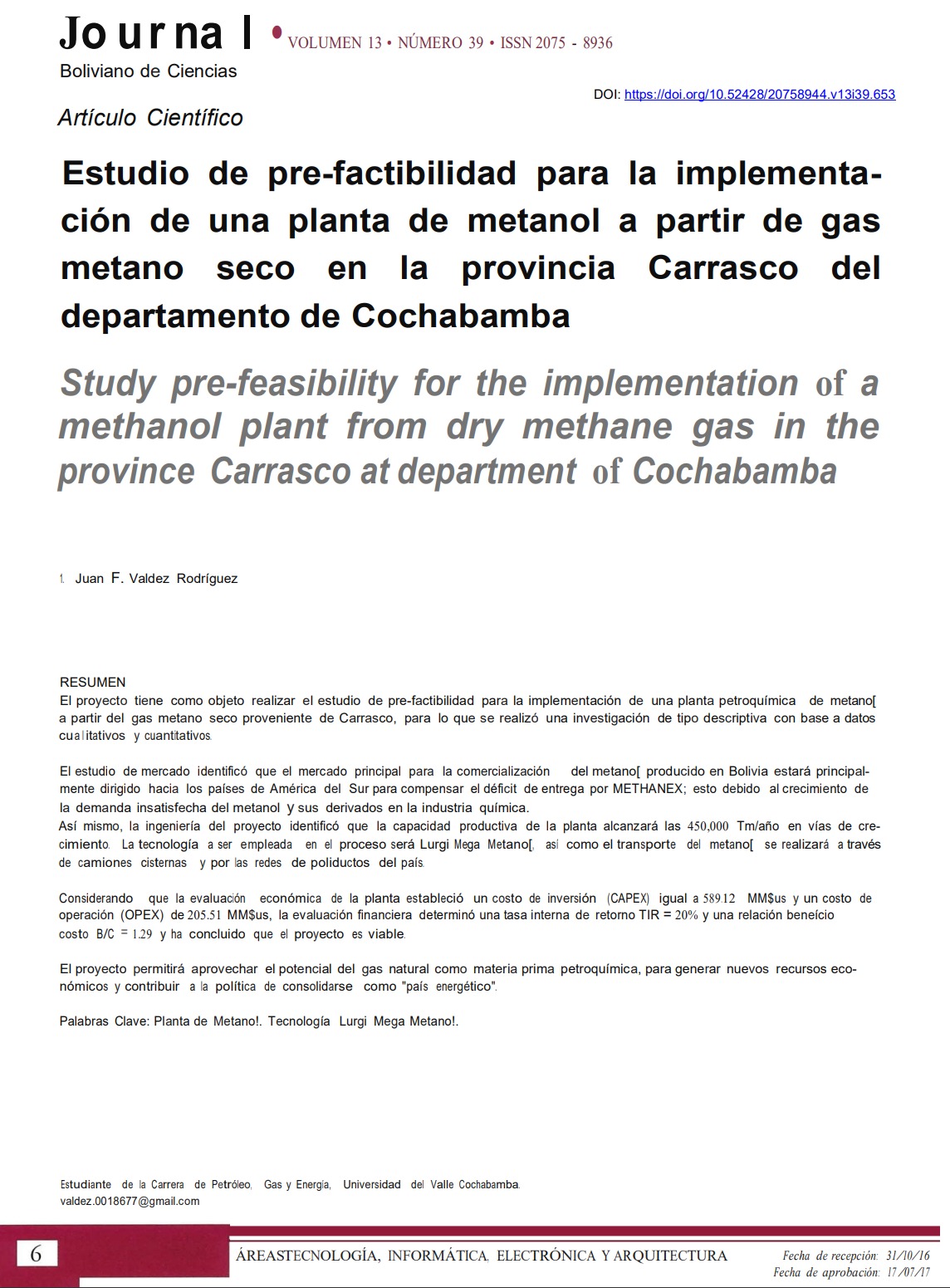
Downloads
Published
How to Cite
Issue
Section
License
Copyright (c) 2017 Juan F. Valdez Rodríguez

This work is licensed under a Creative Commons Attribution 4.0 International License.
Authors who publish with this journal agree to the following terms:
- Authors retain copyright and grant the journal right of first publication with the work simultaneously licensed under a Creative Commons Attribution License 4.0 that allows others to share the work with an acknowledgement of the work's authorship and initial publication in this journal.
- Authors are able to enter into separate, additional contractual arrangements for the non-exclusive distribution of the journal's published version of the work (e.g., post it to an institutional repository or publish it in a book), with an acknowledgement of its initial publication in this journal.
- Authors are permitted and encouraged to post their work online (e.g., in institutional repositories or on their website) prior to and during the submission process, as it can lead to productive exchanges, as well as earlier and greater citation of published work.





